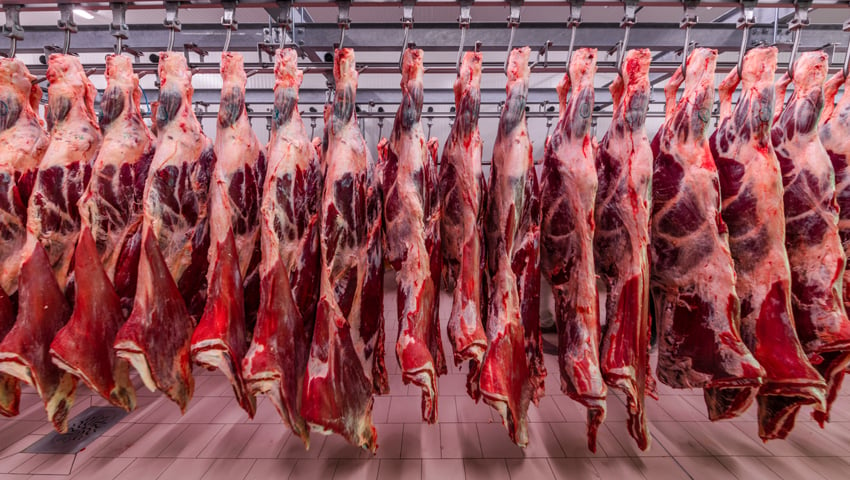ENVIRONMENT Secretary Thérèse Coffey has written to stakeholders telling them that support for small abattoirs, which are “crucial to a sustainable livestock sector,” will be soon be announced.
Coffey said, “We have listened to the concerns of smaller abattoir owners and are identifying opportunities to cut unnecessary burdens, making it easier for them to operate and support farmers in reaching local and international markets while maintaining our world-leading standards. For example, we are working to explore the removal of the requirement for official vets to carry out post-mortem inspections in certain smaller abattoirs.”
The Environment Secretary also said that Defra would be publishing details of a “£4 million Small Abattoir Fund – opening by the end of 2023 – to improve productivity, enhance animal health and welfare, and encourage investment in new technologies.”
This news was cautiously welcomed by Guy MacNaughton, the convenor of LARK (Local Abattoirs R Key). He said “There has been a lot of good work done over recent years to establish why small abattoirs are under such pressure and hundreds have closed but nothing has actually led to any change – so what we hope, from this glimmer of hope, is that change is coming.”
MacNaughton said that abattoirs are “challenged all the time because of the way that Defra and the FSA [Food Standards Authority], through [third party inspectors] Eville and Jones, manage their enforcement, and it’s only when that changes that people might consider going into the industry. That’s an opinion, but why else would you go into an industry when you just know that the regulatory burden is just massive?
In July, MacNaughton wrote to Defra and the FSA saying that, “LARK has heard of countless accounts of poorly trained vets operating without even a basic grasp of English, first-hand knowledge of multi-species abattoirs, experience/capability to interpret/deal with what has become an overly complex set of rules such that they use enforcement as a way of exerting control to counter their lack of experience.”
The FSA acknowledged some years ago that “the present one-size-fits-all regulatory system does not work”, but neither Defra nor the FSA have so far enacted any changes.
FSA statistics show that of the 171 abattoirs operating in Britain in 2019, 99.99% were in complete animal welfare compliance and yet 1,037 remedial action notices and hygiene improvement notices were issued in the preceding 5-year period, with thousands more stage 1, 2 and 3 notices being issued.
111 charges were brought against Food Business Operators by the Crown Prosecution Service on behalf of Defra, but only 18 have so far been successful. LARK estimates that the costs to abattoirs of these prosecutions will be in the region of £750,000.
MacNaughton says that “The FSA’s/Defra’s culture of ‘zero-tolerance’ and contractual influence on OV [operating vet] enforcement activity is not proportionate and as previously stated breaches the Government’s own Regulators’ Code. The real story in my opinion is the amount of regulatory burden that the industry has faced for some years and the lack of support in that.”
MacNaughton points out that his criticisms are about bureaucracy and excessive enforcement. He said, “Meat inspectors of the past talk about the old system versus the new system, you know there is just an extraordinary level of complexity for something that shouldn’t need to be so complex.”
The view that enforcement is excessive is widely shared across the abattoir sector. In an article for Food Manufacture magazine in 2021, solicitor Rebecca Ironmonger wrote that, “The lack of workforce to meet demand is not limited to butchers. Skilled slaughtermen are leaving the profession because of closing abattoirs, attractions of higher paid jobs elsewhere and as a result of Brexit.
“It is against this backdrop that we are seeing unsubstantiated, unreasonable and overzealous enforcement action by the Food Standards Agency (FSA) in our abattoirs, which results in skilled slaughtermen losing their Certificates of Competence entirely unnecessarily.
“When fewer slaughtermen have increased workloads, mistakes are inevitable. For our small abattoirs, with only a handful of slaughtermen, the loss of just one can be disastrous.”
More detail on the Environment Secretary’s statement is expected in the coming weeks.
